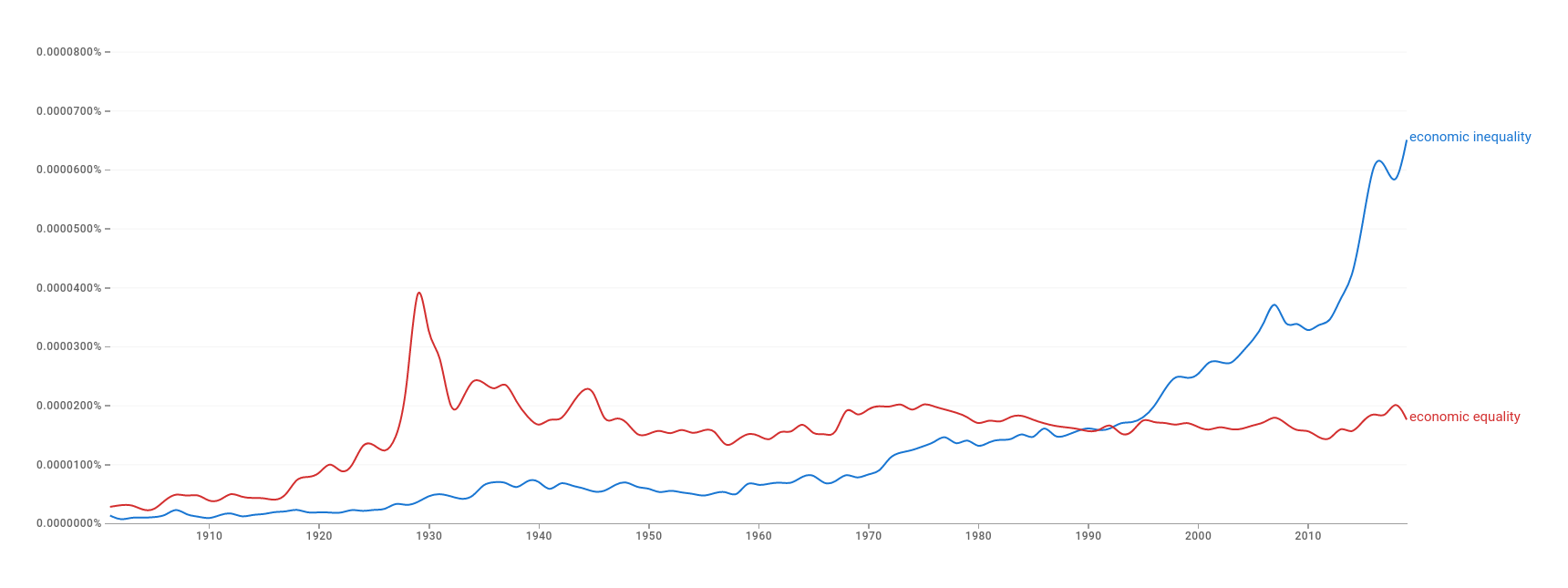Egalitarian Pickpocketing
Saturday, 23 December 2023
Google Ngram chart of economic inequality
and economic equality
for the years 1901 through 2019
During my lifetime, the notion that material inequality, as such, is an ill has been made a dogma of the mainstream narrative.
Before this proposition was a dogma advanced from the commanding heights of our culture, I seldom encountered any argument for it; and, when I did encounter an argument, it was just one of two.
The less infrequent argument was one of a crude utilitarianism. Like any utilitarianism, it assumed that utility were a quantity (or measurable by a quantity) commensurable across persons, the interpersonal sum of which quantity ought to be maximized; the argument further assumed that the marginal utility of wealth diminished at rates sufficiently close between any two persons that one could be assured that, by playing Robin Hood, one would generally increase that interpersonal sum. This argument could not have won the day, because its distinctive assumptions wither and die as they are dragged into the light.
The remaining argument was that material inequality impeded growth or even caused economic decline. Still less discussion was provided as to how material inequality brought-about these effects on growth; but, when discussion was provided, that discussion was characterized by confirmation-bias in the interpretation of correlation, by an unstated presumption that unconsumed wealth tends just to be warehoused (rather than invested), and by hand-waving.
However, instead of relying much upon these two arguments or upon some alternative, journalists and others increasingly began treating the idea that material inequality were bad as if it were obvious and unquestionable and in no need of argument; indeed, it was not explicitly stated, but insinuated, in expressions such as the problem of rising economic inequality
. I expect that, if pressed and unable simply to dismiss a challenger as wicked or as stupid, the typical subscriber to this egalitarianism would grope his or her way to the old utilitarian argument or something very much like it, or would grab with relief at the claim that inequality undermines growth. But the typical subscriber simply is not pressed; she is in a bubble in which the proposition is just not challenged, and not even stated so that she might imagine challenge.


